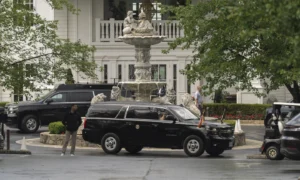Abortions are legal once again in Louisiana after a state court on Tuesday granted a temporary restraining order against the state’s ban that took effect following the US Supreme Court’s decision to overturn Roe v. Wade.
The court order allows abortion services in the state to resume at least until July 18, when a hearing is set to consider whether a preliminary injunction should be issued.
It’s just the latest legal twist for Louisiana’s abortion ban, which was temporarily blocked last month by a state district judge. The state’s attorney general asked the state Supreme Court to step in, and it kicked it back to the lower courts. There, a different judge, Ethel S. Julien, ruled Friday that the New Orleans court did not have the authority to pause the law as the case was transferred to a Baton Rouge state court. The move cleared the way for the state’s trigger law to immediately take effect and blocked abortion clinics in the state from operating.
The abortion ban remained in place until Baton Rouge District Judge Donald Johnson’s ruling on Tuesday.
The Center for Reproductive Rights, one of the litigators in the case, has asked the court in Baton Rouge to more permanently block the bans.
“This is an incredible relief for people who need abortion care right now in Louisiana. Abortion care in the state can resume today, and further irreparable harm has been avoided,” Jenny Ma, senior staff attorney at the Center for Reproductive Rights, said in a statement Tuesday. “Our work continues and we now look ahead to our hearing on Monday, where we will ask the judge to block the bans more permanently.”
Louisiana Attorney General Jeff Landry, meanwhile, tweeted from his verified account Tuesday that “the people of Louisiana have spoken both directly at the ballot box and through their elected legislature again and again and again – not only statutorily but also constitutionally.”
“To have the judiciary create a legal circus is disappointing and what discredits the institutions we rely upon for a stable society,” Landry said. “The rule of law must be followed, and I will not rest until it is. Unfortunately, we will have to wait a little bit longer for that to happen.”
The Supreme Court’s majority decision to strike down the 1973 landmark Roe v. Wade ruling, which established a federal right to abortion, has led states like Louisiana to implement their own abortion laws. The high court ruling has, as anticipated, already resulted in a patchwork system across the country in which access to the procedure is, for many people, determined largely by whether a state is controlled by Republicans or Democrats.







